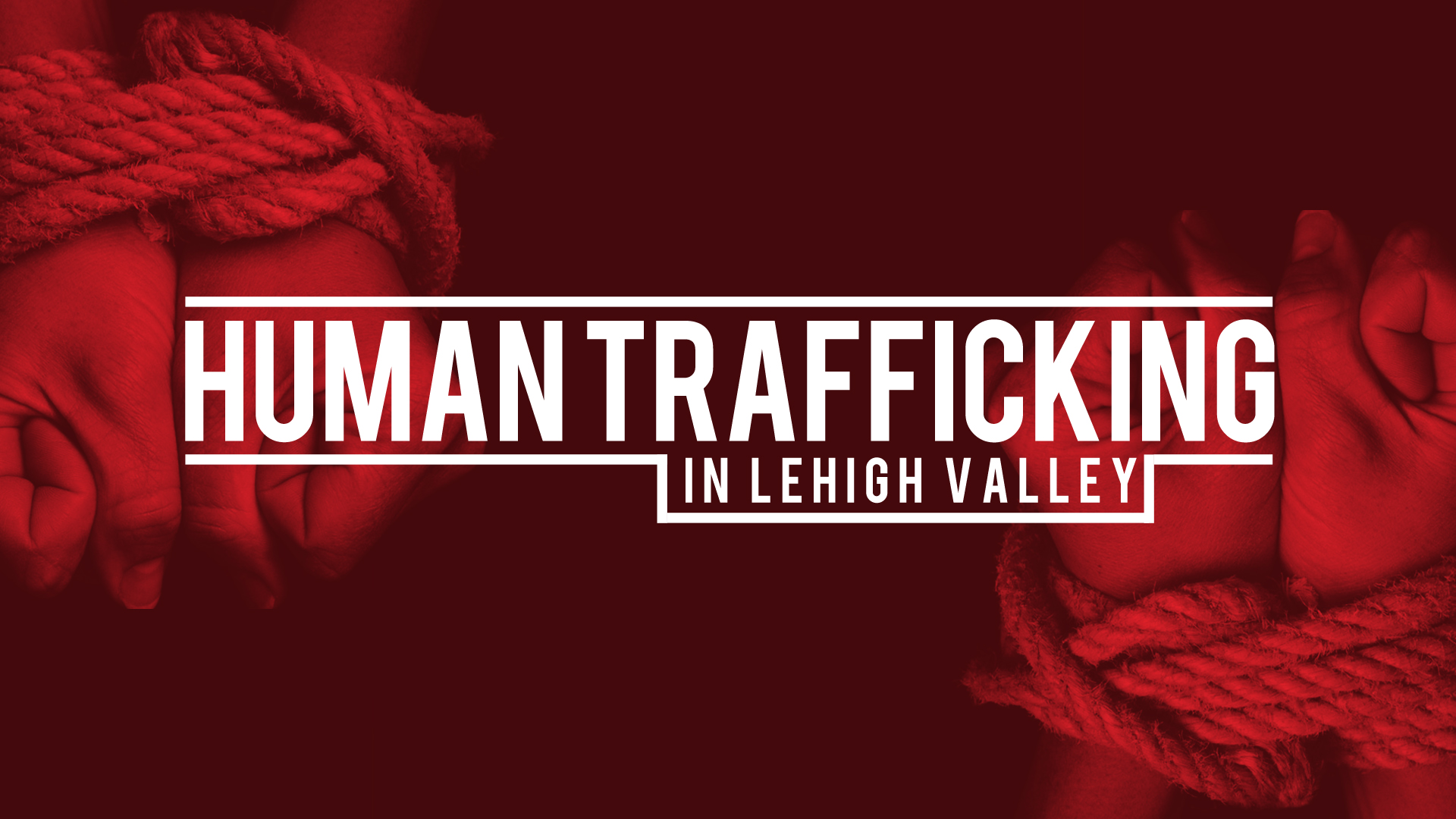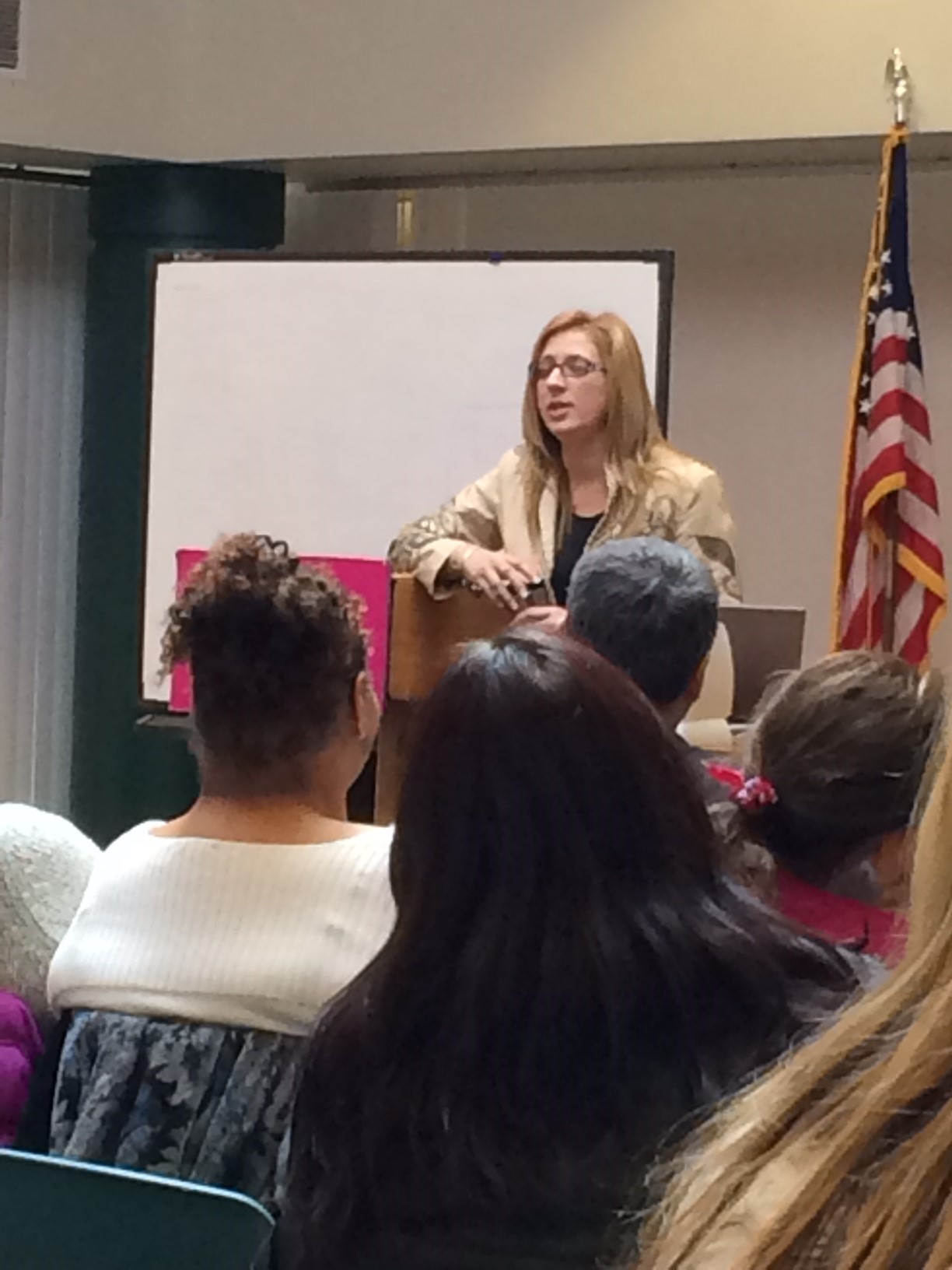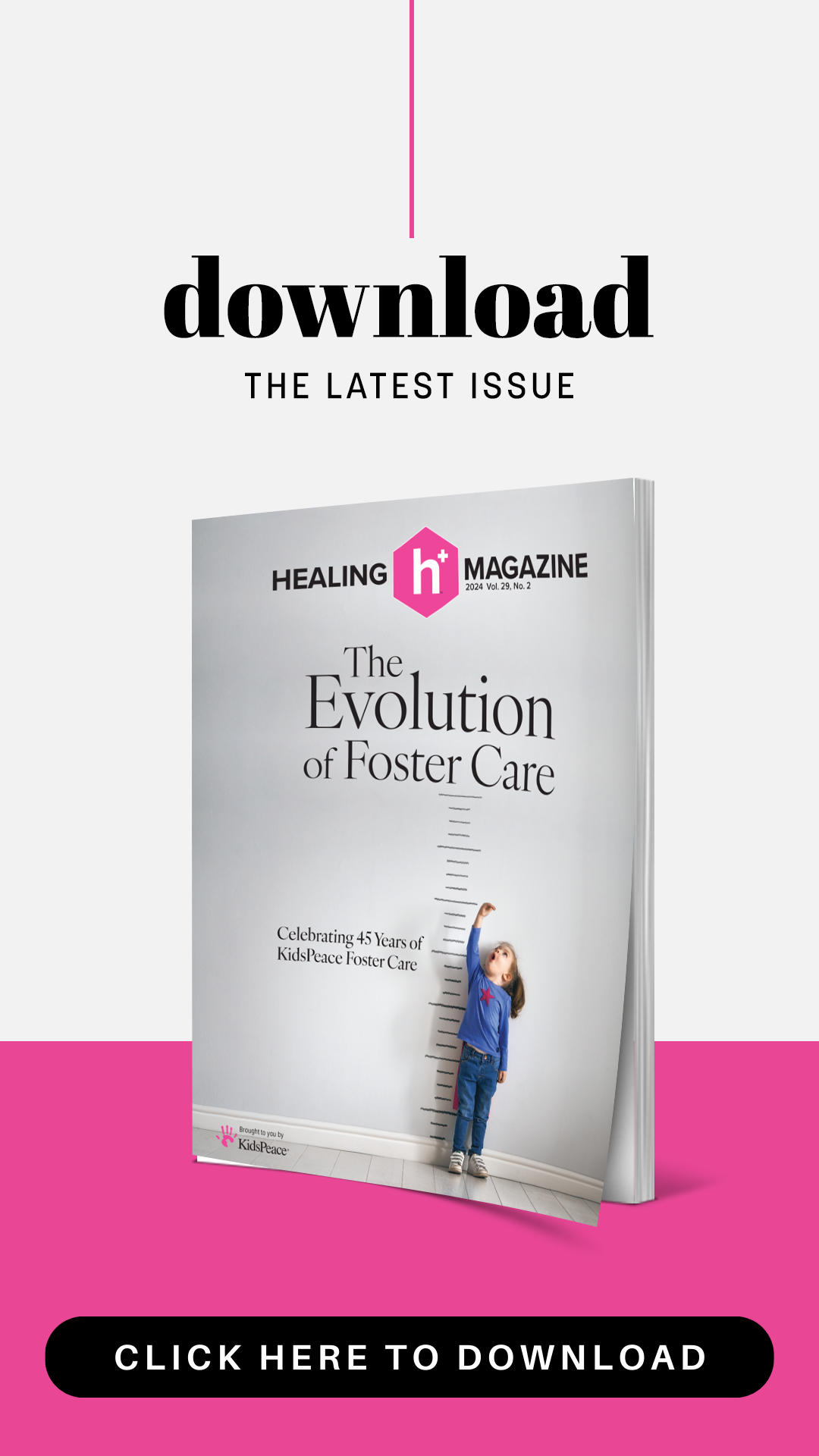

Kim Checkeye of Truth for Women (center) at the March Clinical Café at the Donley TEC facility on KidsPeace’s Orchard Hills Campus.
Kim Checkeye warned the crowd at the March KidsPeace Institute Clinical Café session that they were likely to be uncomfortable before her presentation was done: “My advice is, plan tonight to treat yourself to ice cream and maybe a funny movie, because you will find it difficult to hear what I’m going to say.”
That unpleasant subject is human trafficking and Checkeye, president and CEO of the Lehigh Valley-based Truth for Women, offered the 70 healthcare workers and therapists attending the session an unflinching look into the practice and its cost to victims and society.
“Based on 2008 numbers, which are the latest available, human trafficking is the second largest criminal industry in the U.S, behind only drugs, with $31.6 billion in annual revenues,” she said. Between sex trafficking and labor trafficking, some 27 million people in the U.S. are currently victims of trafficking – and 300,000 children each year are at risk of joining that number.
The two types of trafficking have a common definition – a person is put into them through some combination of force, fraud and coercion. Labor trafficking is seen often in industries like construction, food service and restaurants, and nail salons. “For example, if you see a stylist at a nail salon who has to ask permission to go to the bathroom, and especially if a supervisor follows them there, it’s an indication that they are being trafficked,” Checkeye said.
Sex trafficking is even more common, according to Checkeye, because it’s a “high reward/low risk” endeavor. “These victims can be sold over and over again, and they’re been so victimized that it’s rare for them to try to leave or call the police.”
She also noted that common misconceptions about the sex trade serve to keep the broader community unaware of the problem. “People think a victim chooses prostitution or the sex industry willingly, or that she does it to support her drug habit. But up to 95 percent have been abused and forced into that activity by a pimp. And studies show that drug addiction most often is the result of being forced into prostitution, not the cause.” She also noted the perceptions fostered by popular entertainment, saying she is “infuriated” that movies, music and TV shows portray pimps as successful and their victims as willing participants in the sex trade.
In detailing warning signs that someone may be a victim of human trafficking, Checkeye challenged another misconception – that they’re nothing a single person can do to address the situation. “By reporting suspected trafficking, you could be changing one life, and if you change a life you can affect the world.” She advised attendees who suspect trafficking to call the National Human Trafficking Resource Center Hotline at 1-877-373-7888, and for more information on her group to visit www.truthforwomenCenter.org
Watch the Events section on kidspeace.org for information on upcoming Clinical Café presentations.



